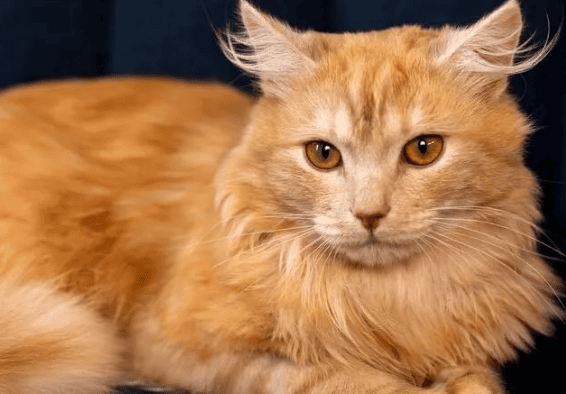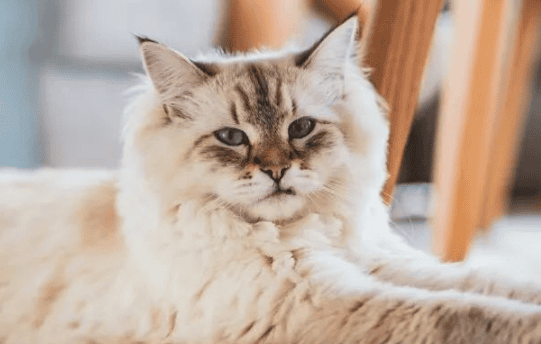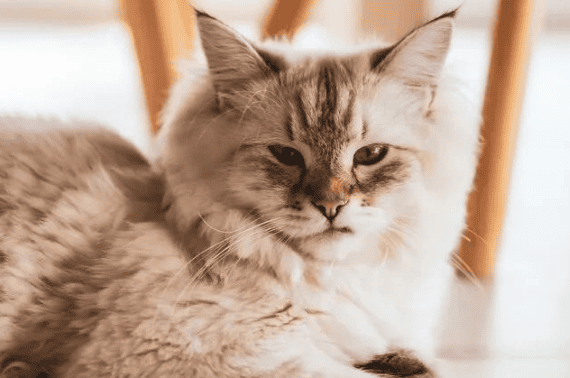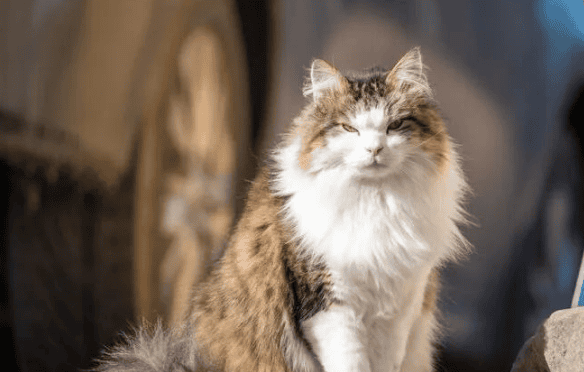The lion cat, also known as the lion-headed cat, is a small cat with thick hair and a long hair on its head that forms a lion's mane. Lion cats are docile and friendly, and are suitable for family breeding. However, because their long coats require regular grooming and care, domestic lion cats require their owners to spend a certain amount of time and energy taking care of their coats. If the owner has enough patience and time to take care of the long hair of lion cats, they are suitable pets for home breeding.

What should you pay attention to when raising lion cats?
1. Pay attention to cat hair care when raising lion cats
p>The long hair of lion cats requires regular combing and care to prevent tangles and hair loss. It is recommended to spend some time combing the lion cat's hair every day, especially during the period when the lion cat is moulting, combing is more important. Using a comb suitable for long-haired cats, gently comb starting at the skin and working your way outward, making sure all hair is combed smoothly. At the same time, it is also necessary to bathe lion cats regularly, but do not bathe frequently to avoid damaging the health of the skin and hair. In addition, pay attention to check the eyes, ears and claws of the lion cat, keep them clean and trim the claws regularly. These care measures will not only keep your lion cat's appearance tidy, but also help prevent skin problems and other health problems from occurring.

2. When raising lion cats, you should pay attention to the cat’s dietary nutrition
Provide lion cats with balanced nutrition. Food is very important. Cat food should contain enough protein, fat, vitamins and minerals to support the growth and health of your lion cat. Choose a high-quality cat food brand, preferably one specifically designed for long-haired cats to meet their special nutritional needs. Avoid giving human foods to lion cats, especially foods that contain alcohol, caffeine, chocolate, and other foods that are harmful to cats. Also, limit snack intake, as too many snacks can lead to obesity and other health problems. Make sure your lion cat has enough fresh water available at all times to maintain its hydration intake. Check with your veterinarian regularly about your lion cat's dietary needs and health to ensure it is receiving proper nutrition and care.
3. Pay attention to environmental safety when raising lion cats
Ensuring that the environment at home is safe for lion cats is an important part of taking care of them. First of all, pay attention to toxic substances and dangerous items in the home, such as cleaning agents, medicines, plants, etc., and they should be placed in places where cats cannot reach them. Cords and sockets should also be insulated and hidden to prevent your cat from being shocked. In addition, ensure that the windows and balconies of your home have safety protection measures to prevent cats from falling or escaping. Furniture and decorations in your home should also be stable to prevent your cat from accidentally knocking them over or breaking them while playing. Regularly checking the security of your home to ensure that there are no potential dangerous factors can allow your lion cat to live in a safe and comfortable environment.
4. When raising lion cats, you should pay attention to the cat’s activity range
Lion cats are a very social cat species, so they need to interact with people and other animals. Giving them enough attention and play time can satisfy their activity needs and also help build a close relationship with their owners. Your lion cat’s social needs can be met by playing, petting, and communicating with it regularly. In addition, if there are other pets in the home, make sure they get along well with each other to avoid conflicts and stress. Establishing a good interactive relationship with lion cats will not only allow them to grow up happier and healthier, but also allow you to enjoy the fun of getting along with your cat.

5. When raising lion cats, pay attention to regular physical examinations
Take lion cats to the veterinarian regularly. Health exams and vaccinations are very important. A veterinarian can check your lion cat's health and identify and treat potential health problems promptly. At the same time, regular vaccination can help lion cats prevent some common cat diseases and improve their resistance. Health exams and vaccinations are recommended at least annually, or as recommended by your veterinarian. Pay attention to the health status of lion cats at home, such as diet, defecation, mental state, etc. If any abnormalities are found, seek medical treatment in time. Regular health checkups and vaccinations can help your lion cat stay healthy and extend its life.
6. When raising lion cats, pay attention to the basic training of cats
Basic training, such as toilet training and basic command training, can help manage and control the behavior of lion cats. Toilet training can help lion cats develop good toilet habits and avoid urinating and urinating randomly at home. Basic command training can help lion cats learn some simple commands, such as sit down, standby, etc., and improve their obedience and obedience. When training, use positive motivation methods, such as rewards and praise, and avoid using punitive methods to avoid causing the lion cat's disgust and rebellious psychology. Continuous training can make lion cats more obedient and manageable, and the communication with their owners will be smoother.

Although lion cats require some care and attention, they are generally friendly, docile pets that bring a lot to the family. Fun and joy. With the right care and affection, lion cats can become loyal companions and integrate well into families. Therefore, raising a lion cat requires a certain amount of effort and time from the owner, but the reward is a deep emotional connection with these adorable cats and quality time spent together.

 扫一扫微信交流
扫一扫微信交流
发布评论